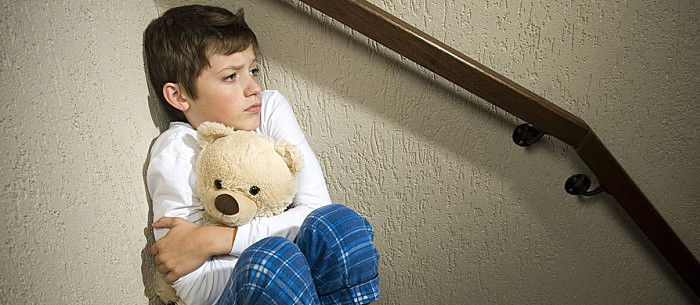It is completely normal for children to develop fears at some point. However most childhood fears are irrational, and it would make their lives (and their parents’ lives) much easier if they could learn to cope with them. Most children eventually overcome their childhood fears on their own, but there are steps that parents can take to help their little ones along.
How Do Childhood Fears Emerge?
Childhood fears are a normal and natural part of development. They emerge in the gap between being exposed to something new and mastering the experience. This is why you will notice that ‘typical’ childhood fears change as children age. For instance, common fears in toddlers include loud or strange noises, strangers, monsters and separation from parents or known carers. Older children on the other hand have normally mastered these fears. Instead, they are normally afraid of storms, scary news on the TV, parental divorce or social rejection.
Signs that your child may be afraid include being hesitant to try new things or being overly clingy or distracted. Your child may also exhibit signs such as sweaty palms, headaches or stomach pains.
Addressing their childhood fears and taking them seriously is important to helping your children feel safe. You’ll also be able to keep an eye out for signs that their fears are developing into something more like widespread anxiety. Be sure to talk to all your child’s carers and teachers so you can come up with a cohesive plan on how to handle your child when they’re afraid. In doing so, you’ll provide comfort and stability as your child outgrows or learns the tools to cope with their fears.
Helping your child in overcoming fear is something all parents should take seriously. Because this is a normal experience, it is important for parents to not be alarmed or dismissive of their children’s fears, but rather to be empathic and supportive.
How Can You Help Your Child Overcome Fears?
As a parent, you may not be able to safeguard your child entirely from developing fears, though the way you talk to them makes a big difference. Be concrete and descriptive in your language, especially if a fear seems to have arisen from a misunderstanding of something someone said or something your child heard or saw.
Support, encouragement and reinforcing positive thoughts when you’re talking to your child about their fears are critical. Using statements like, “I know I can do this!” or “This is actually fun, not scary” can help normalise what they’re afraid of and at the same time, teach them a great method to cope. If your child wakes up at night, afraid of the dark or monsters, staying with them in their dark room and talking through their worries can make a big difference. If you sit with your child in the dark until they are not feeling as scared, you’ll help them learn to become less fearful.
Teaching your child to test their fears, not trust them, is another tool for helping your child overcome fear. Fact check the statements that worry tells them, and come up with a more accurate story for what is really going to happen. If your child is afraid of the loud sounds of thunder, discuss how the sound isn’t going to cause them any harm, and talk about what thunder really is. Equipped with new, more accurate information, children can be encouraged to approach the feared situation one small step at a time so they can get used to it. The key: trust that you’ll adjust.
When Should You Worry About Your Child’s Fears?
If you’ve done everything you can in order to reassure your child and they’re getting more distressed, their fears are generalising to more situations or they seems to be more anxious than afraid, it may be time to seek professional help. You cold consult a licensed therapist in your area who specialises in working with children. A therapist can assist in determining if your child’s fears are more significant anxieties and can guide you as to whether further treatment may help.


